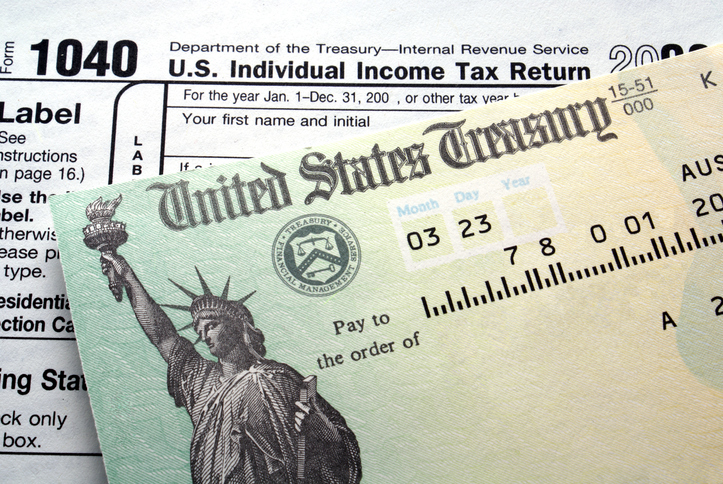Ten Tax Tips For A Smooth Filing Process
A Long Island couple who used the same accountant for many years, even after the accountant moved to Florida, recently ran into trouble. In previous years at tax time, they would meet with the accountant in his office and go over the return together with documents. Even once the accountant moved to Florida, he would return to go over taxes. But he stopped traveling back to Long Island to review returns in person with clients. While Zoom might have been possible, even second best, that review process no longer took place the way it used to. Things didn’t work out well.
The couple soon began receiving letters from the Internal Revenue Service, indicating that the returns omitted income from various mutual funds. This led to penalties and additional payments. Those meetings, it turns out, had provided an important step in checking returns. While meetings may not be necessary, it’s important to realize that while an accountant may fill out forms, the taxpayer is still responsible for accuracy.
“Remember that ultimately you as the taxpayer are responsible for the contents and information in the return,” said Ed McWilliams, a partner at Cerini & Associates, an accounting firm in Bohemia. “While you should, where appropriate, rely on the advice of a professional tax preparer, as the taxpayer, the IRS and state taxing authorities will ultimately hold you responsible for the completeness and accuracy of the filed tax return.”
- Understand your taxes
While you should be able to rely on your accountant’s accuracy, the first tip for any taxpayer is to at least try to understand your own tax returns. This will make it easier for you to check them, whether that means having them explained to you or simply going over the numbers to double-check. And, of course, try to make sure that your accountant, assuming you use one, is reliable and has a good track record.
- Vet the preparer
Don’t just check your returns. Check your preparer, if you use one. Make sure they have experience, a track record and credentials. “For taxpayers looking for professional assistance, it is important to vet the preparer,” McWilliams said. “This includes checking with the IRS that the preparer has a Preparer Tax Identification Number (PTIN).”
You can check this at RPO Preparer Directory (treasury.gov) or https://irs.treasury.gov/rpo/rpo.jsf. While this doesn’t list all preparers, it provides information that can be helpful. In addition, it’s wise to understand the scope of services to be provided by the preparer and “make sure the preparer explains the crucial points of the return and that you as a taxpayer trust the preparer,” McWilliams said. It also helps to be as aware as possible of any misunderstandings that could likely occur.
- File information in a timely fashion
Don’t give your preparer the information at the last minute, for this can lead to a rush or extensions. And don’t give incomplete information. If you do provide incomplete information, it also helps to have time to supplement it.
“Understand that tax preparers are human too; we can at times misinterpret information, particularly verbal information provided by taxpayers, or there can be unclear interpretations of law that we make judgments on.,” McWilliams added. “Equally, we are not robots and, while every client is our most important client, you are not our only client. It takes us time to accurately and completely prepare a return.”
- Provide complete, organized information
During January and February taxpayers typically receive many tax documents. It helps your preparer if you keep your information organized and provide it all at once, rather than piecemeal. “Information is king,” McWilliams said. “The more you provide and the more organized it is, the quicker and more completely we can prepare the return. “
- Update preparers on major changes
If there are major new elements, let the preparer know clearly and early, rather than expecting them to glean that information from documents. “If there are any changes from the past such as new investment accounts or jobs, please inform us,” McWilliams added. “Also, if we are requesting additional information, please know we aren’t doing it to make you miserable, but rather to make sure we prepare a complete and accurate return.”
- Be polite and expect politeness
Politeness along with competence are hallmarks of professionalism. It may be obvious, but be as professional and accommodating as you can, and expect professional behavior from your preparer. While many taxpayers connect with their preparer only when they file, sometimes it helps to touch base in advance.
- Stay in contact
A simple call regarding major decisions such as rolling over retirement accounts, withholding on new jobs, or starting a business can allow your accountant to act proactively rather than reactively. “A pound of prevention is worth a pound of cure,” McWilliams continued. “If you only speak to your tax professional at this time of year, you are not fully embracing the suite of services we can provide and the depth of information we have to share.”
- Fees may save money
Your preparer may offer additional services that could save you money. Be aware of what’s available. “As a whole, such additional services may incur additional fees,” McWilliams said. “As the old parable goes, the fee for hitting the boiler with the hammer is $1, but the fee for knowing where to hit is $9,999. The ability to help plan, mitigate and prepare can be money well spent.”
- Communication is king
While information is king, so is communication. As to whether you need to meet physically, that is a judgment call. But make sure you review your accountant’s work and communicate with each other clearly. Trust is a good thing, but trusting and verifying is always a good policy.
- Be a good consumer
While it’s important to hire a good tax preparer, if you’re a good client, that can ease the process. Think of the project as a partnership. Your preparer should do a good job. If you do a good job overall, that will make things easier and more efficient. Ask your preparer about any measures that can save you money, whether filing jointly or separately. Pay estimated taxes and do a good job on your end, because filing tax returns and paying taxes may be inevitable, but turmoil in filing them is not.
































